Detailed Examination of Papadimitropoulos v R: Legal Implications
VerifiedAdded on 2023/06/07
|6
|1005
|155
Case Study
AI Summary
This document presents a comprehensive analysis of the landmark case Papadimitropoulos v R (1957). The case revolves around the definition of rape and the crucial element of consent. The facts involve a man, Papadimitropoulos, who was accused of rape after having sexual intercourse with a woman under the false pretense of marriage. The legal issues centered on whether the woman's consent was vitiated by fraud, specifically the misrepresentation of their marital status. The court examined the nature of consent required for carnal knowledge, emphasizing the need for the woman to understand the identity of the man and the nature of the act. The judgment clarified the distinction between consensual marital intercourse and extramarital sexual relations, ultimately quashing the conviction. This case is legally significant as it appropriately defines rape and highlights the moral and legal differences between marital intercourse and sexual relationships without marriage. The court relied on cases like R. v. Lambert to highlight the importance of understanding what is about to occur, including the identity of the man, for consent to be valid.
1 out of 6

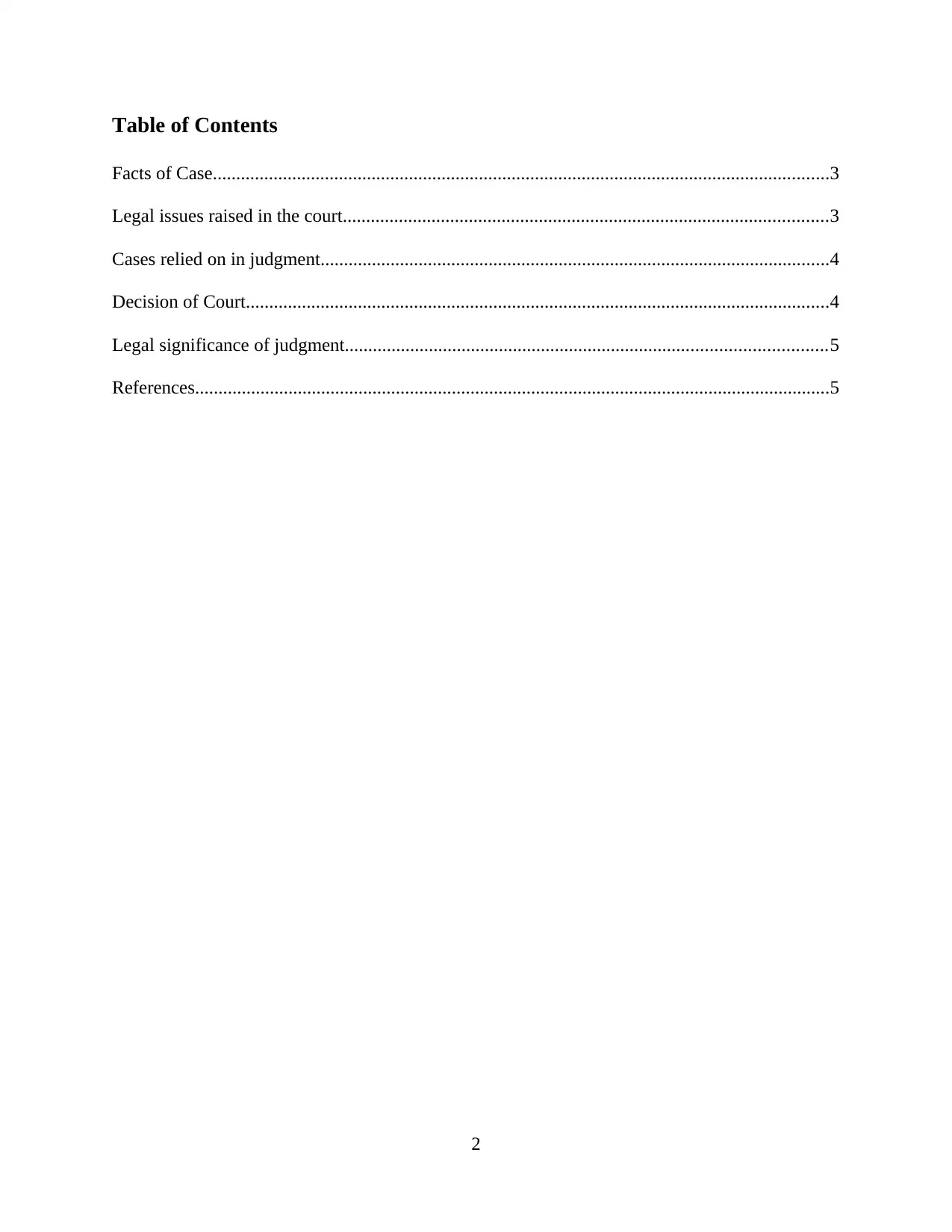
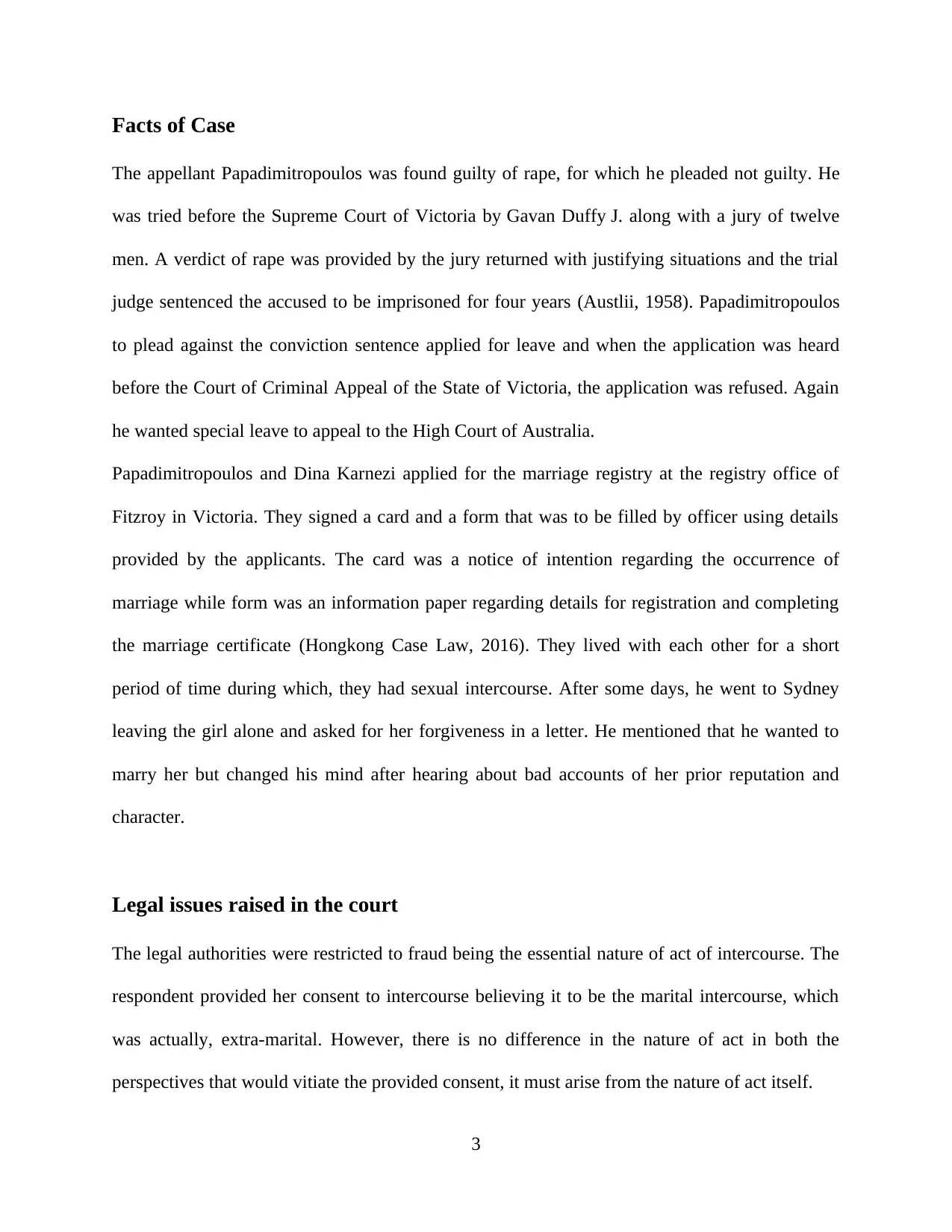

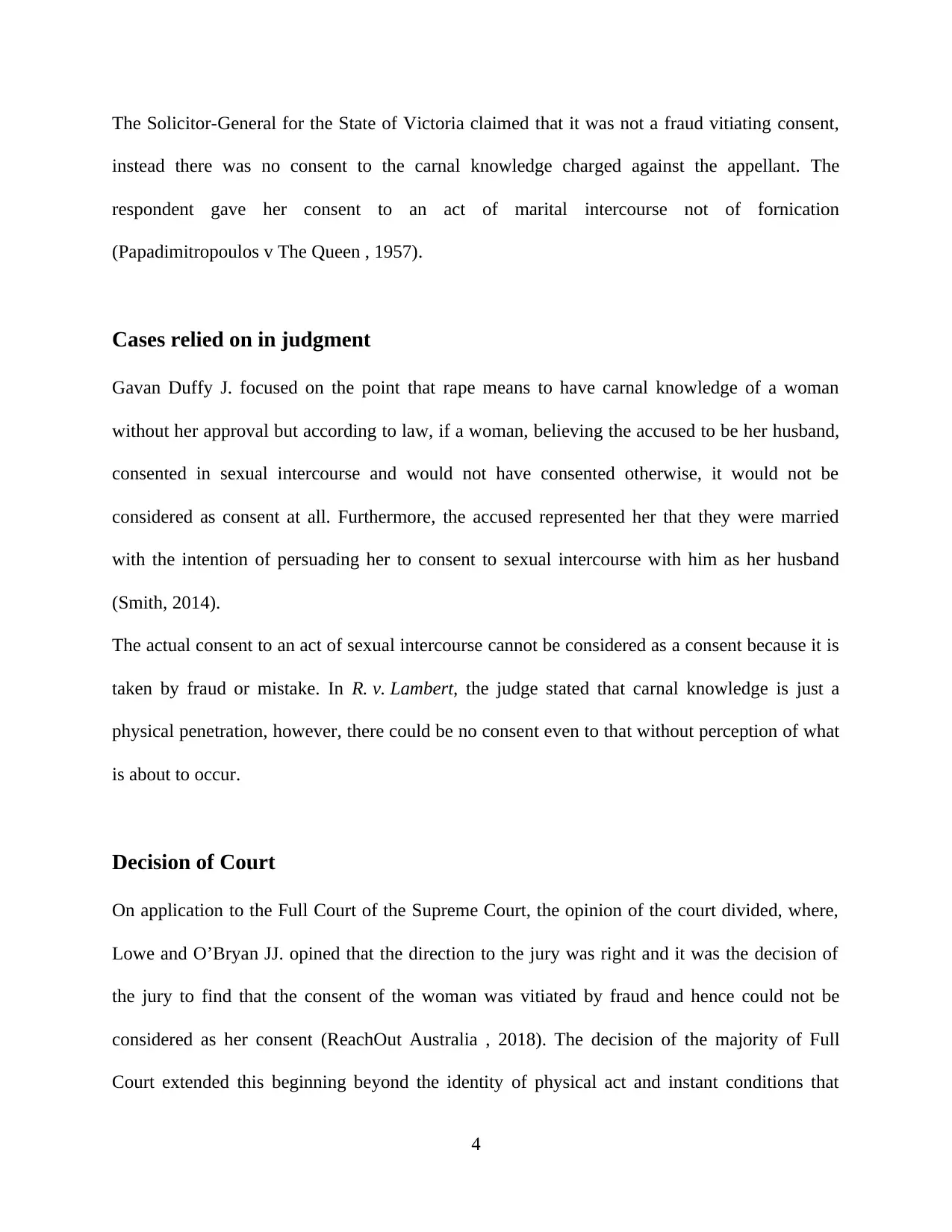
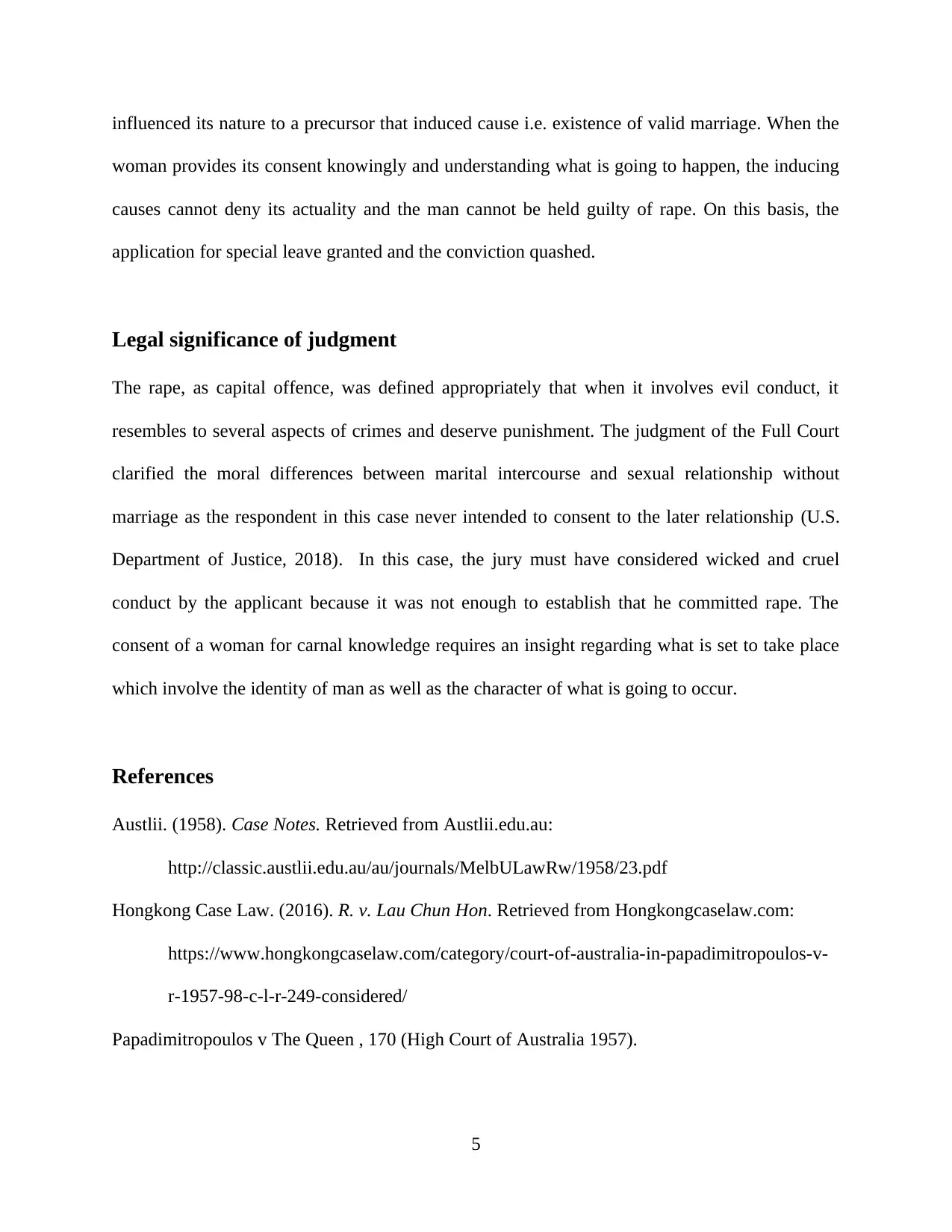
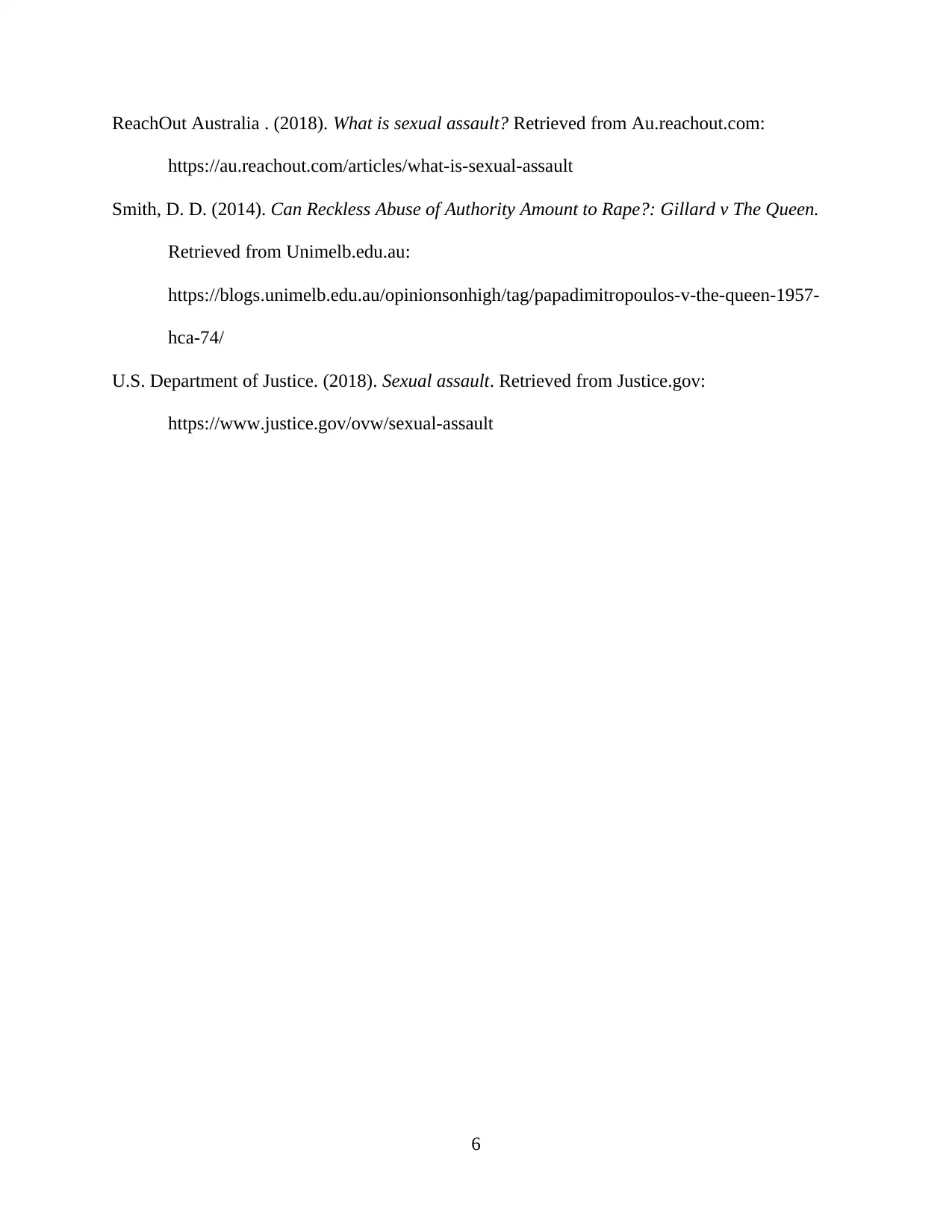
![Detailed Case Study of R v R [1992] AC 599: Examining Legal Issues](/_next/image/?url=https%3A%2F%2Fdesklib.com%2Fmedia%2Fimages%2Fan%2F3fcd22026cb547d2ada436020ea22f5d.jpg&w=256&q=75)
![[object Object]](/_next/static/media/star-bottom.7253800d.svg)